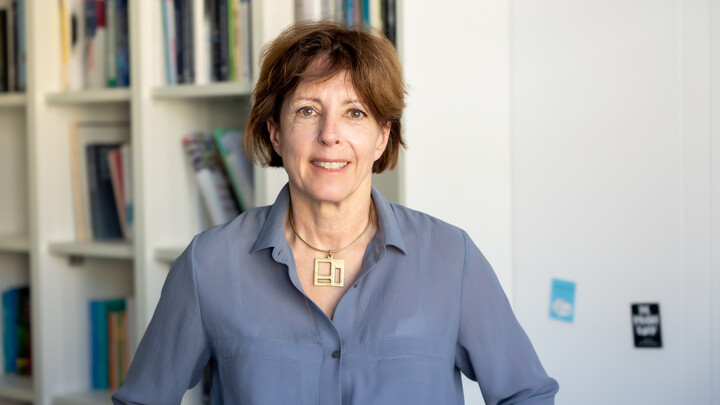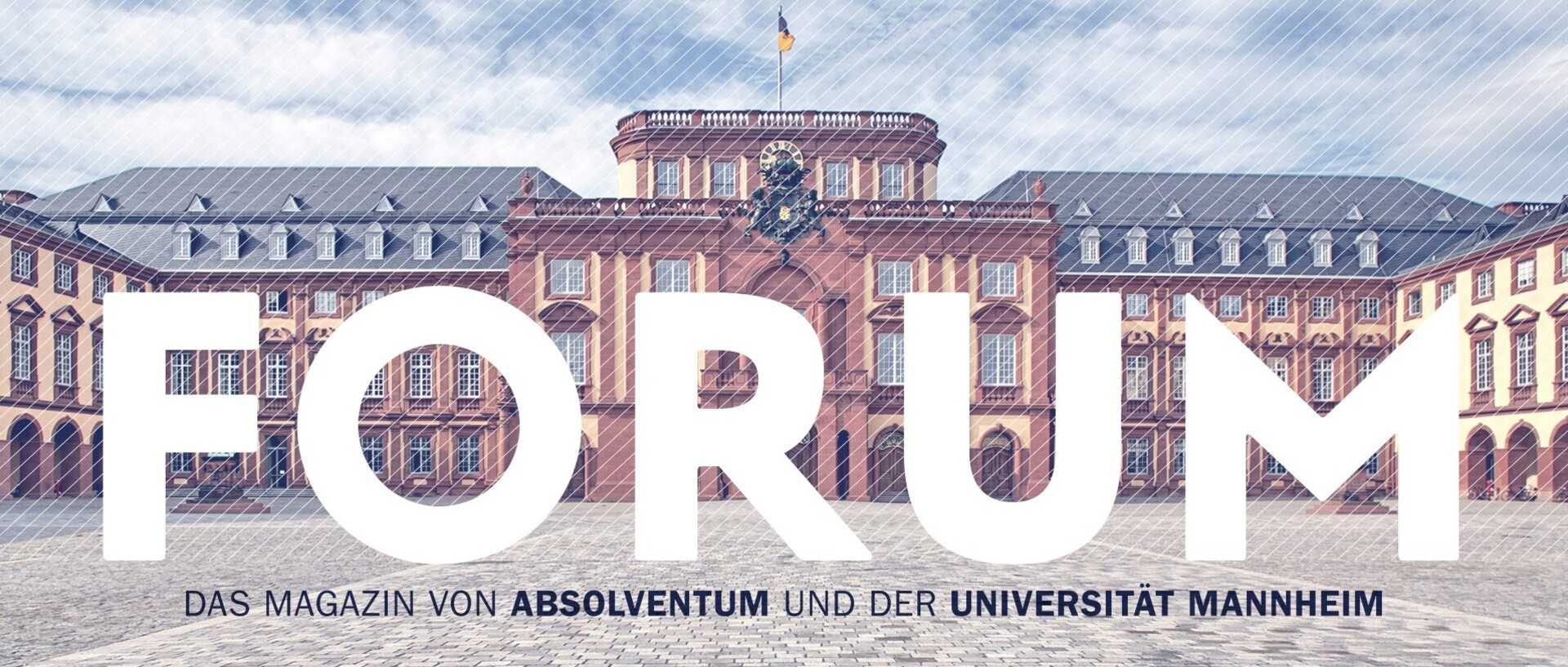A Portrait of Professor Dr. Michaela Wänke
Michaela Wänke, Professor of Consumer and Economic Psychology, joined the University of Mannheim ten years ago. The Mannheim professor is focused and full of passion for her research: She is convinced that anyone trying to tackle the problems of Western society, such as sustainability, mobility, diet, social justice, and health, has to understand people’s consumer behavior first.

Body wash containing 70 percent oil, a chocolate drink with at least 38 percent cocoa and raspberry jam containing at least 55 percent fruit. They are brightly colored, often roundly shaped and have promises printed all over them: Product labels are the items that catch our eyes when strolling through the store. Designed to be a buying incentive for supermarket customers, the labels are a research subject for Michaela Wänke, Professor of Consumer Psychology at the University of Mannheim. If one asks the researcher, who was born in Mainz, about her subject, she often talks about a project funded by the German Research Foundation (DFG), because it makes especially clear what consumer psychology is all about. “We were thinking about the conclusions people draw from product labels. Let’s assume that “20% almonds” is printed on a cookie packaging. My hypothesis was that consumers think that this is a lot”, explains Wänke. The studies’ findings support the hypothesis: Even if the consumers had no idea if the share of the ingredient they deemed valuable actually was large, they concluded that it was and that it was larger than in other, comparable products. Why else would a manufacturer, who wants to sell the products, highlight the share?
The 62-year-old researcher wants to understand consumer decisions and consumer behavior. “Consumer psychologists often have a bad reputation. People think that we are the ones influencing and tempting them to buy things they do not need. However, this is not the goal of consumer psychology, and it is also not my goal. We want to understand consumer behavior, like all academic disciplines want to understand things. And the goal of psychology is to understand human behavior”, Wänke explains in a calm voice, while looking at the camera of her laptop. Michaela Wänke carefully chooses her words when speaking about her work. She publishes her articles in English but never has to search for the German equivalents. Although the background of her video is blurred, one can see many books on the shelves behind her. These are books that the psychologist has taken with her, as she was traveling around the world for work. “I’ve always wanted to work abroad. I almost find it boring that I’ve ended up in Mannheim”, laughs Wänke. When she finished high school, she already knew that she wanted to become a consumer psychologist. Back then, the subject area did not really exist, so she studied psychology in Mainz, Haifa and Mannheim and focused on social psychology. After earning her Diplom, she was an international market researcher at BRAUN AG for three years. She returned to the University of Mannheim for her doctorate and then went to Sydney with a Heisenberg fellowship. Afterwards, she accepted her first position as professor in Erfurt, before she went to Basel, where she was a professor of Social and Economic Psychology for ten years. Then the University of Mannheim created a chair of Consumer Psychology – the exact field Wänke has dreamed about since the start of her career. She developed the chair at the University of Mannheim from the start and has coined the term “consumption” to go beyond advertisements. “If you look around, consumption is everywhere. If you like it or not, is another question, but we are not able to avoid it. We are not able to avoid that other people may influence us and we are not able to avoid consumer decisions. Most decisions we make in our daily life are consumption decisions in the widest sense”, says Wänke.
Who gets our vote? What do we eat and where do we shop for food? Wänke always thinks of the big challenges our society must face and is convinced that the research of consumer psychologists can contribute significantly to tackling these problems. “I really think that many of the problems of our society, not all, but many, are related to consumption. The sustainability topic is also mostly a consumption problem. Mobility, health, overweight, smoking – these are all serious problems and especially the food topic is only about consumption. We have to understand consumer behavior if we want to tackle these issues.” Wänke tells a story of the ELECTRIFIC project she recently wrapped up and it becomes clear that the way forward is not easy. In this project, which was funded by the EU, an interdisciplinary team developed the first app to display the share of renewable energies at the charging stations for electric cars. Wänke’s team analyzed incentive systems. What motivates people more – saving money or carbon dioxide? Or: How can the drivers of electric cars be encouraged to push the energy-saving eco button? The research team got some electric rental cars and started an experiment, which is, as Wänke points out, always the ideal research method in consumer psychology. They put stickers inside some of the cars. The experiment was a huge success. If the test persons believed that others had pushed the button, they pushed it as well. But the actual finding of the experiment was another: It did not matter if people pushed the eco button, because there was no difference in energy consumption. The test person pressed the gas pedal harder to accelerate more quickly despite the eco button. “We had the wrong approach. It would have been better to influence the test persons so that they drive in a more energy-saving way, but this is much more difficult to achieve. Pushing the eco button is a single action, but the driving behavior is mostly automated”, says Wänke.
For someone, who constantly thinks about consumer decisions, consumer behavior and influencing the human psyche, how does it feel like to go shopping in a supermarket? Michaela Wänke smiles into the camera of her laptop and says that for her, it was sometimes like a small expedition. Supermarkets were always a great source of inspiration for her next research projects.
Text: Jule Leger / April 2022
